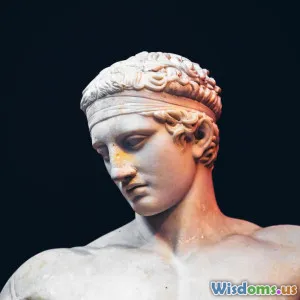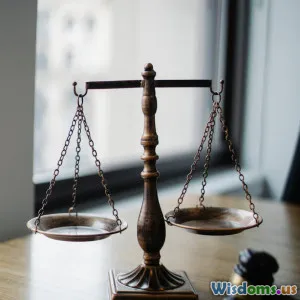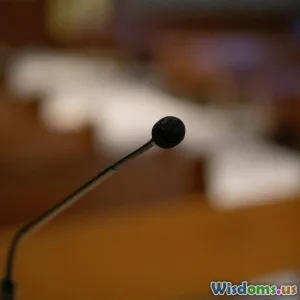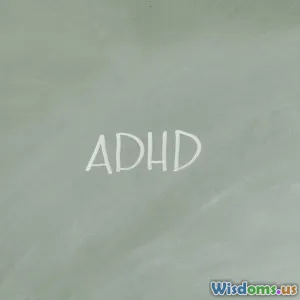
Legends in Contemporary Culture
7 min read Explore how ancient legends shape modern culture through media, identity, and storytelling. (0 Reviews)
Legends in Contemporary Culture: The Living Legacy of Mythology
Introduction
Mythology and legends have fascinated humanity for millennia, shaping worldviews, traditions, and art. But their relevance sharply transcends history; these ancient tales pulse vibrantly within contemporary culture. From Hollywood blockbusters and bestselling novels to cultural identities and social movements, myths have evolved into dynamic tools that modern societies wield to educate, entertain, and inspire. This article delves into the multifaceted ways legends continue to resonate today, exploring their presence in entertainment, identity formation, and social discourse.
The Enduring Power of Myth in Modern Media
Legends Reimagined on Screen and Page
Cinema and literature have proven fertile grounds for the resurgence of legends. Classic mythological figures like Hercules, Thor, and Medusa have seen enduring popularity, tailored for new audiences. Marvel’s "Thor" trilogy, grossing over $1.4 billion globally by 2017, reinterprets Norse mythology by blending traditional legends with contemporary character development and humor, captivating fans worldwide. Similarly, Rick Riordan’s "Percy Jackson" series, inspired by Greek mythology, has introduced mythic themes to younger generations, selling over 30 million copies worldwide.
Television shows like "American Gods" bring myths into dialogue with modern society, addressing themes like immigration, identity, and change by personifying gods adapting to contemporary America. Myth-inspired video games such as "God of War" immerse players in mythic worlds, proving legends' adaptability to interactive media.
Why Mythological Narratives Connect Today
Myth offers universal archetypes: heroes, monsters, quests, and transformations that mirror human experience’s core struggles and aspirations. Joseph Campbell’s concept of the "Hero’s Journey" famously outlines how myths’ narrative structures resonate psychologically, which explains their persistence. Modern storytellers use these frameworks to make complex realities accessible and emotionally engaging.
Mythology as a Fabric of Cultural Identity
Legends in National and Ethnic Identity
Many communities anchor their identities in legendary narratives that speak to origin, values, and resilience. For example, the Maori people of New Zealand draw strength and self-understanding from legends of Māui, the demigod who fished the islands from the ocean. Similarly, Irish mythology—like the tales of Cú Chulainn—remains vital to Ireland’s sense of historical pride and cultural distinctness.
Legends also serve diasporic populations seeking connection across geography and generations. By invoking ancestral myths, these groups maintain cultural continuity despite displacement or globalization’s homogenizing forces.
Modern Interpretation and Revival Efforts
Contemporary artists, writers, and community leaders increasingly revive and reinterpret myths to foster cultural pride and address social issues. Indigenous creators worldwide employ traditional stories to challenge colonial narratives and assert sovereignty. This reclamation also impacts language preservation, ceremonial rites, and education, showcasing myths as vital social tools rather than relics.
Social and Psychological Dimensions of Legends
Myth as a Mirror to Contemporary Issues
Legends today are not just escapism but platforms for exploring current challenges. Popular retellings often adapt themes such as power, gender dynamics, justice, and environmental stewardship. For instance, the rise of female-centric retellings of myths, like Madeline Miller’s "Circe," offers nuanced perspectives empowering marginalized voices.
Mythological symbolism permeates activism as groups invoke archetypal motifs to articulate visions and struggles. Environmental movements reference Gaia, the Earth goddess, emphasizing planetary interconnectedness and responsibility.
Psychological Comfort and Collective Memory
Carl Jung viewed myths as expressions of the collective unconscious, communal dreams encoding societal fears and hopes. In times of rapid change or crisis, people gravitate toward legendary narratives to make sense of uncertainty, promote resilience, and find purpose. Rituals rooted in myth offer psychological stability and community bonding, evidenced in modern festivals and cultural celebrations worldwide.
Case Study: The Legend of King Arthur in Popular Culture
King Arthur’s legend exemplifies the transformation of myth over time. Originally medieval British folklore emphasizing chivalry and rightful rule, Arthurian concepts permeate contemporary culture. Films like "Excalibur" (1981) and TV series such as BBC's " Merlin" reimagine Arthur to reflect modern values around leadership, honor, and inclusivity.
Moreover, Arthurian mythology underpins narratives around democracy and ideal governance globally, symbolizing the tension between power and justice. Its motifs inspire diverse media formats, from video games like "Kingdom Come: Deliverance" to novels and comics.
Conclusion
Legends are far from static mythology entombed in dusty tomes; they are vibrant, living forces shaping culture and identity. By permeating media and society, myths inform contemporary narratives, grant cultural cohesion, and provide psychological refuge. Their continued reimagining and reclamation reflect humanity’s timeless endeavor to understand itself. As we move forward, acknowledging and engaging with these legends enriches our cultural tapestry and deepens connection across generations.
May the echoes of ages past continue to inspire stories yet to come.
References:
- Campbell, J. (1949). The Hero with a Thousand Faces.
- Marvel Studios Box Office Data, 2017.
- Riordan, R. (2005-2009). Percy Jackson & The Olympians series.
- Jung, C.G. (1964). Man and His Symbols.
- Miller, M. (2018). Circe.
Rate the Post
User Reviews
Popular Posts





















